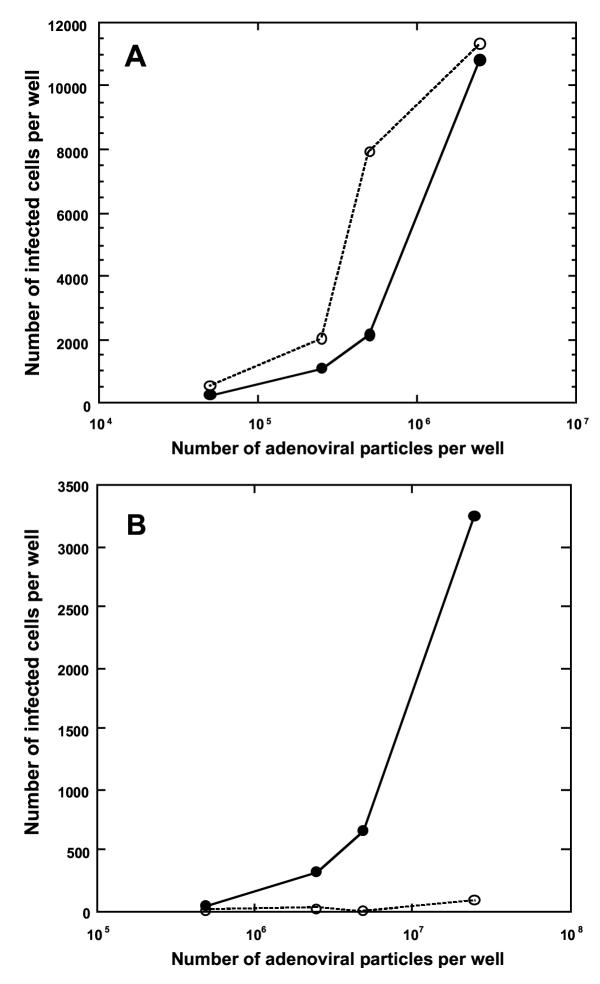Figure 4.
Effect of the natural permissivity of target cells for adenoviral infection on in situ transduction of the cells by adenoviral vectors immobilized on a solid surface. A, D-17 cells (canine osteosarcoma cell line that is highly permissive to adenoviral infection); B, C6 cells (rat glioma cell line that is poorly permissive to adenoviral infection). Ad5.CMV-LacZ was treated with 15 μg/ml sulfo-NHS-LC-biotin, followed by the removal of non-virion-associated biotinylation reagent. Varying numbers of the resulting biotinylated adenoviral vectors were added to streptavidin-coated wells (well diameter, 0.64 cm; Reacti-Bind Streptavidin Coated Polystyrene Wells) for immobilization, followed by the removal of unbound viral particles. Target cells (8 × 103 cells per well) were placed on the wells and cultured at 37°C for 48 h. Cells were fixed with glutaraldehyde and stained for the expression of the lacZ gene (●). Unmodified Ad5.CMV-LacZ was used free in solution as a control (○). Data shown in A and B are representative of three and four, respectively, independent experiments.

